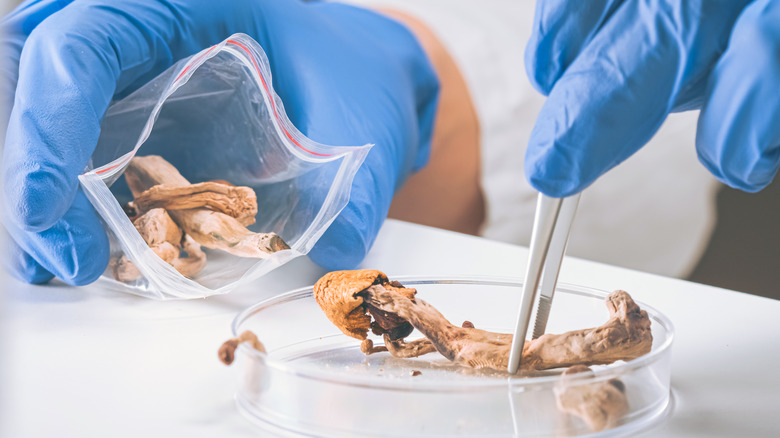Magic mushrooms may make you think of people taking drugs in dark rooms or their fantasy-filled hallucinations. As time goes on, more studies are being done on its active ingredient that should change that perception. A new study is significant for those with hard-to-treat depression.
According to the Mayo Clinic, depression is a mood disorder that affects how you think, feel and behave and causes persistent sadness. It can cause many symptoms, including outbursts, loss of interest, hopelessness, unexplained health problems, and suicidal thoughts. Treatments consist of therapies and various antidepressant medications that help to stabilize mood and reduce anxiety symptoms. There are many medications and medication types because they don’t all work for everyone, and they can cause side effects.
Hard-to-treat depression or treatment-resistant depression (TRD) occurs when those with depression fail to respond to two or more trials of depression-targeting medication (per The Journal of Clinical Psychology). This form of depression is challenging to treat and affects 2.8 million adults in the U.S.
In attempts to find effective alternatives to treat depression, research has been done using psilocybin, an active ingredient in hallucinogenic “magic mushrooms” that may help to “rewire” the brain, reports the University of California San Francisco. Their study found that psilocybin may help to allow new insight, thoughts, and perspectives in otherwise rigid thought patterns that occur in depressed brains. It appears that psilocybin shows promise for treating depression, but does it work for those resistant to treatment?
Synthetic psilocybin reduces treatment-resistant depression

A recent study published in The New England Journal of Medicine looked into using synthetic psilocybin for treating those with TRD. In the study, adults with TRD stopped other antidepressant treatments two weeks beforehand. They were randomly given synthetic psilocybin in a single 1-milligram, 10-milligram, or 25-milligram dose in a fixed setting with psychological support from trained therapists. When tested three weeks after receiving the dose, 37% of those who took the 25-milligram dose still showed improvement, and 29% were in remission. Only 19% and 18% of the 10- and 1-milligram groups showed improvement when tested three weeks later. After 12 weeks, all groups were tested again, but only 20% of the 25-milligram group still showed improvement.
In a press release, Dr. James Rucker, Consultant Psychiatrist & Lead for the Psychoactive Trials Group at IoPPN at King’s College London, who conducted the study, said, ” Whilst many patients with mental health problems get better with available treatments, a subgroup of patients do not even though they try many different forms of treatment. This can lead to a variety of other problems that seriously impact on patients and the people around them …This study, which is by far the largest clinical trial on the use of psilocybin for treatment-resistant depression to date, demonstrated that a single 25 mg dose of psilocybin improved participants’ symptoms of depression in comparison to a 1 mg dose (control). These findings are a positive step in the right direction.” Based on the positive progression in testing psilocybin, it may be the future for treating depression.




